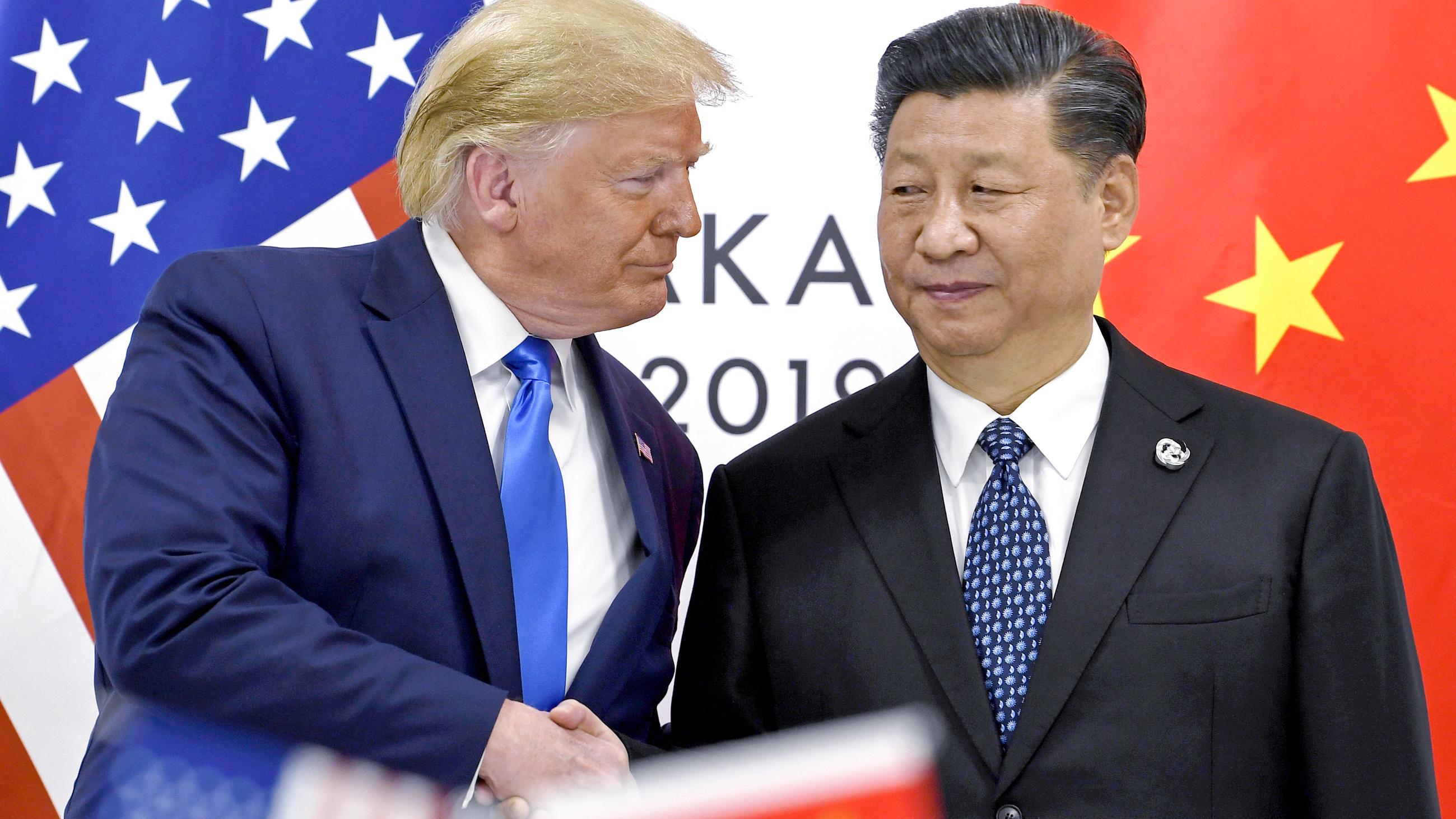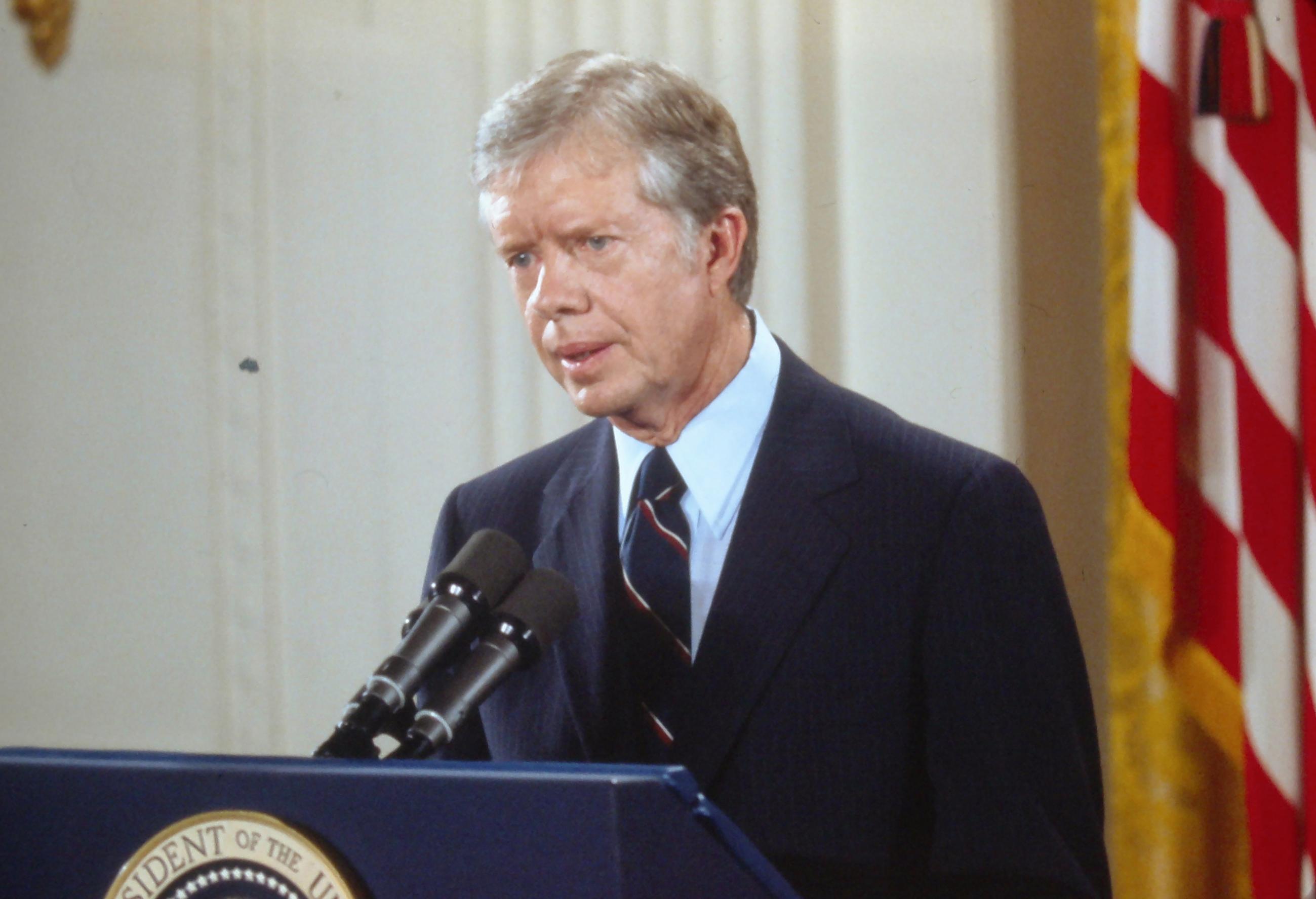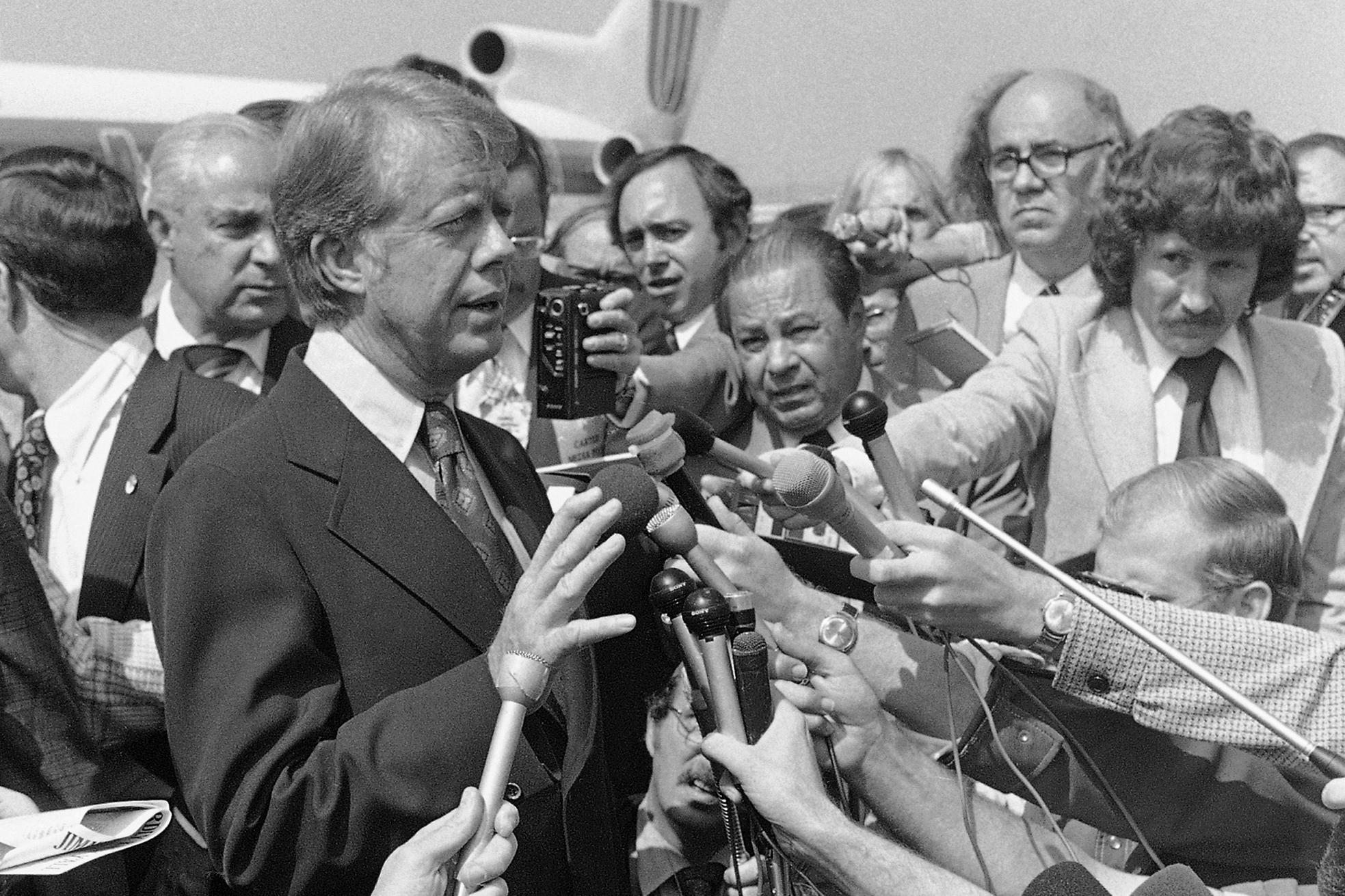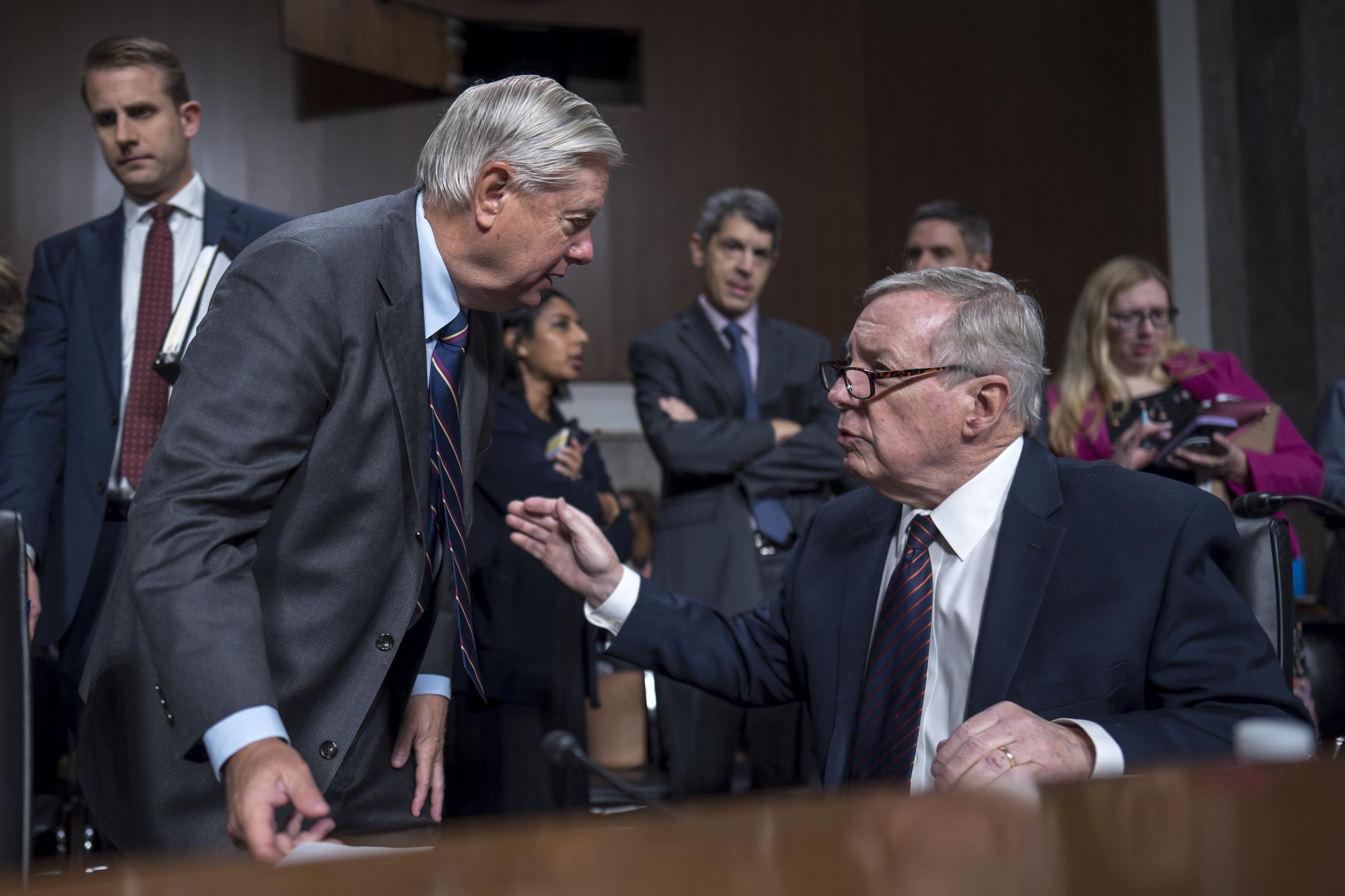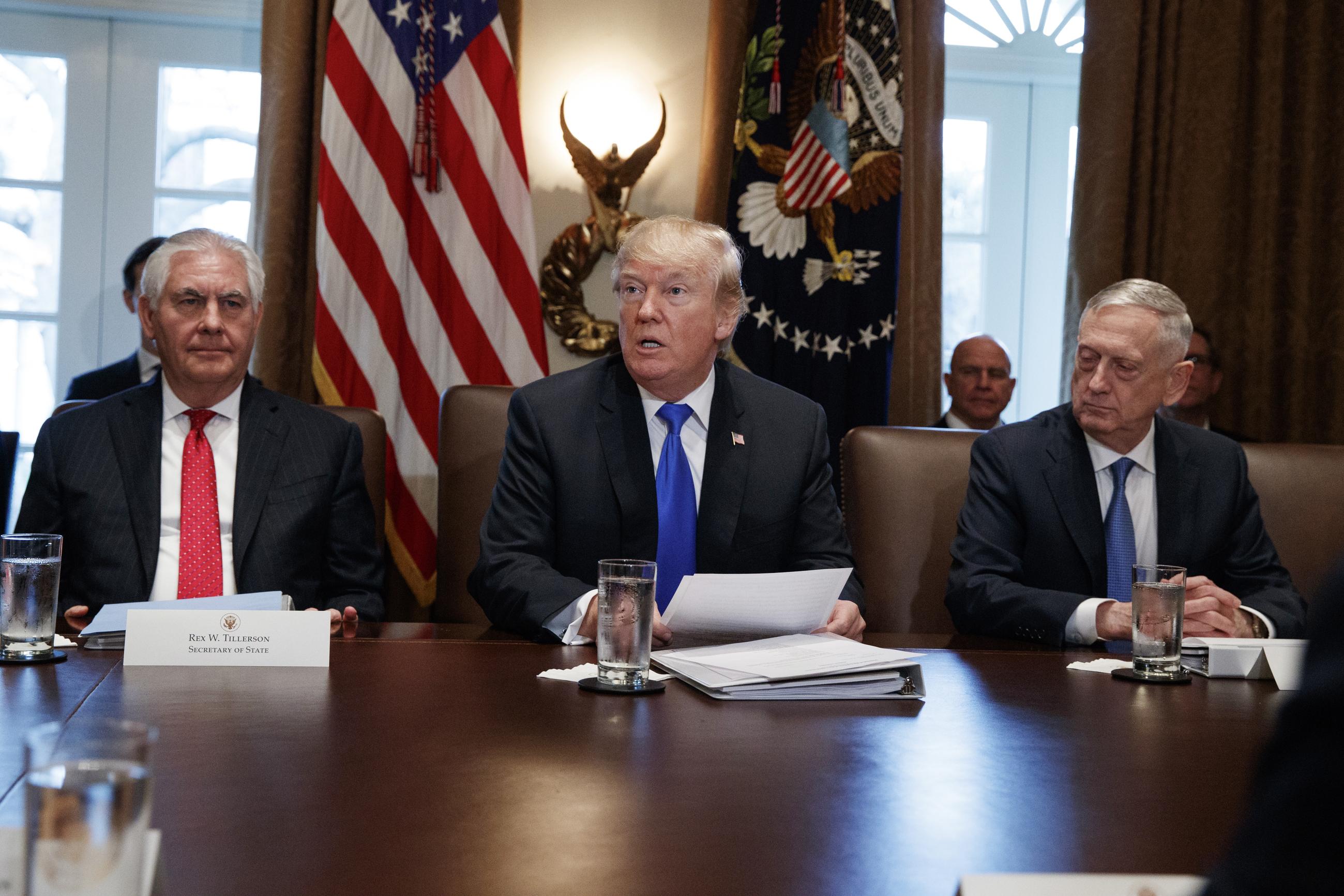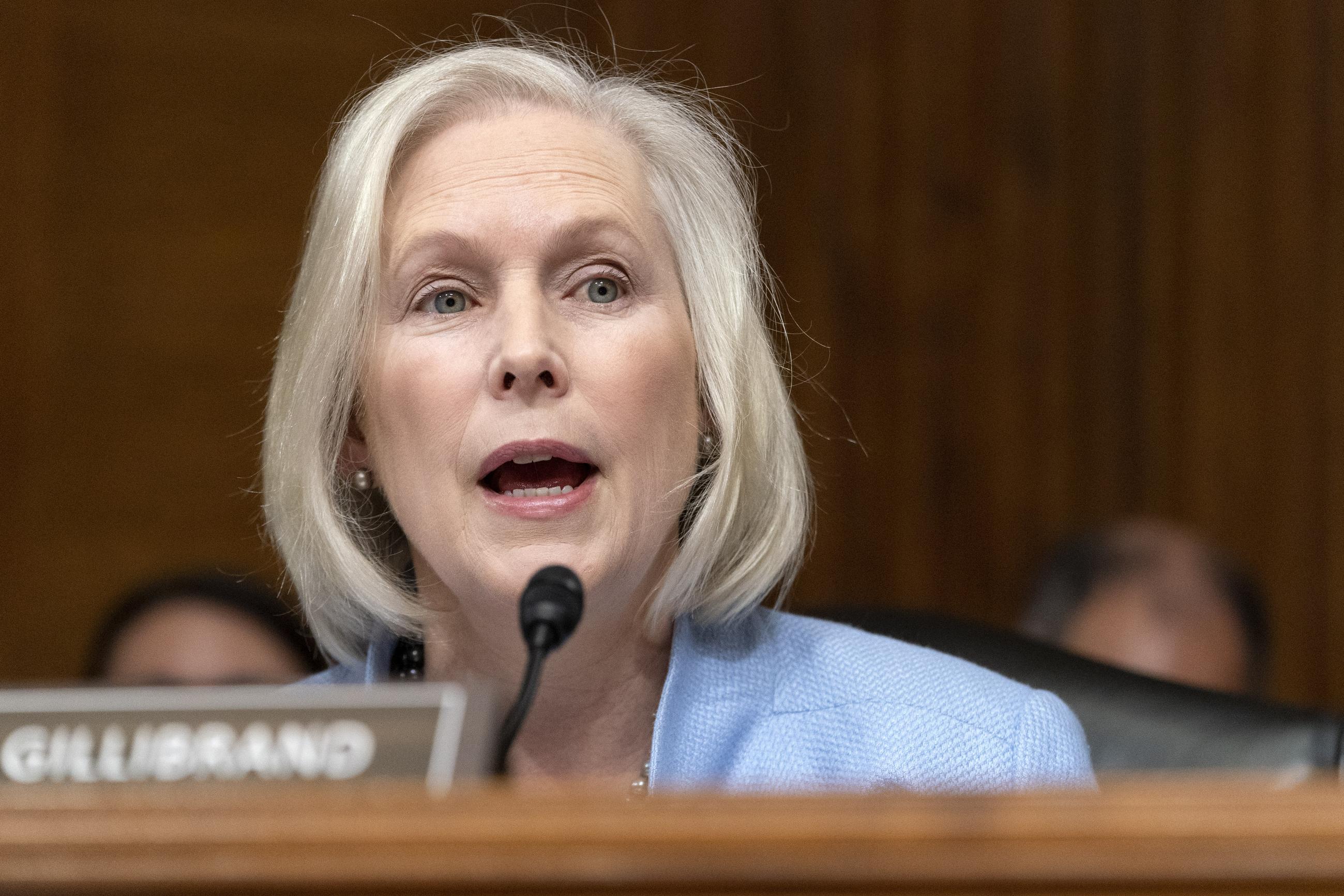Earlier this month, President Trump floated a 100 percent tariff on China, on top of the existing 30 percent, to go into effect Nov. 1, and confirmed that the U.S. is “in [a trade war] now” with China during a press conference.
The Trump administration is also reportedly considering retaliation against China’s rare-earth export restrictions: limiting “critical software” exports to China—what Reuters describes as everything from “laptops to jet engines.” It would be the next step in escalating trade tensions between the two countries.
Since Trump first took office in January of 2017, he’s been focused on addressing trade imbalances between the U.S. and China, starting with his first round of tariffs in 2018. Now that his second administration is well underway, he’s back to playing hardball. But not all the media conservatives who have cheered much of his America First agenda are on board.
Conservative Mike Adams, host of the Health Ranger Report podcast, has called the proposal “domestic suicide.” He said the decision to “actually put a 100 percent tariff on China would be devastating to the U.S. economy” and “would split the world into America versus BRICS, and America would lose.”
BRICS is a consortium of emerging economies that was founded by Brazil, Russia, India, China, and South Africa.
On the other end of the spectrum, foreign policy hard-liner Steven Crowder said of the trade war: “If China wants to play this game, we can play this game. The difference is, we will outlast them.”
Radio host and comedian Adam Carolla echoed the sentiment on the PBD Podcast. He acknowledged the U.S.’s dependence on China, but argued that a separation was needed. “We’re going to have to re-break the bones, and the patient’s going to be down for a little bit,” said Carolla. “And then we’ll rehab and we won’t walk with a limp.”
Lane Kendall, writer and supervising producer of Crowder’s podcast, agreed.
“You’re going to feel more short-term pain. But it is not domestic suicide,” Kendall told National Journal. “What’s domestic suicide is continuing to prop up your greatest adversary, economically and militarily, hoping that they will be benevolent in the future, when their documents explicitly outline they have no intention to be benevolent in the future.”
Conservative podcasters offer an alternative look into the inner workings of the Republican Party, and some of their ideas often bubble their way up to Capitol Hill. Trump is widely considered to have won the election in part due to his communication team’s strategy of appealing to young male voters through the podcast space.
Kendall sees some conservatives falling on the other side of the argument because “their salary depends on them not understanding” the trade issues with China. To him, it’s a matter of choosing between monetary gain and patriotism.
“There are so many business interests, including in the conservative voter base, that have an interest in their bottom line being continually exposed to China, because they can sell things for cheaper ... they can get cheaper labor,” Kendall said. “There’s a million reasons, monetarily, for people to want to have free and unfettered access to the Chinese market. However, I think the hand is eventually going to be bit.”
Conservative economists, however, seem to fall somewhere in the middle.
“You could argue that it hasn’t really ever been free trade with China,” Allison Schrager, a senior fellow with the conservative Manhattan Institute, told National Journal. “The way they subsidize industry doesn’t make trade truly fair. That is, in a sense, a tariff.... I think [to] even the most ardent free-trade economists, there’s a lot of things about China that’s going to challenge your feelings about it.”
Schrager, who said she views herself as an economist more than a conservative, said she’s not sure that playing hardball is how to get there.
“I don’t think we really want to get into a match of who can subject their population to more pain,” she said. “China is definitely going to win that.”
And Desmond Lachman, a senior fellow with the American Enterprise Institute, another conservative think tank, explained the situation along similar lines—but emphasized he doubts the U.S. version of "playing hardball" will actually come to fruition.
“What we’ve seen in Wall Street, is they’ve heard about the TACO trade: that TACO stands for Trump Always Chickens Out. You and the Chinese know that. So as soon as the stock market falls by 10 percent, 20 percent, Trump backs off,” Lachman said. “They note that the U.S. can’t take pain, whereas they can, because they’ve got an authoritarian kind of government.”
Whether or not the 100 percent tariff will actually go into effect remains unclear. The original effective date was Saturday, Nov. 1, which coincides with Trump’s trip to Asia this week. Negotiations will take place between Trump and Chinese President Xi Jinping on Thursday, but, as Lachman notes, it’s unclear whether Beijing believes Trump will hold true to his tariff threats. Treasury Secretary Scott Bessent told CBS earlier this week that he doesn’t think the 100 percent tariff will go into full effect, calling it “effectively off the table.”
Scott Kennedy, an expert on U.S. and China relations with the bipartisan Center for Strategic and International Studies, said he hopes to see conservatives gravitate towards the idea of “calibrated coupling” with China.
Kennedy says that outright decoupling, or completely breaking away from Beijing, is a physical impossibility unless the U.S. is willing to wage a full-scale trade war. But, he adds, to simply “let bygones be bygones” is also not a feasible answer for the U.S. economy, nor for national security concerns. He suggests a policy somewhere in the middle of the two poles.
“The U.S. needs to modify the relationship with China, or make it based on principles that align with our values and interests,” Kennedy told National Journal. “We need to calibrate the extent of our relationship to address both our concerns about fairness as well as economic security, because in many elements of the relationship, actually being connected, if done in the right way, helps our national security.”
One recent example of the White House getting close to this “calibrated coupling” idea, according to Kennedy, is the trial balloon Commerce Secretary Howard Lutnick and AI czar David Sacks have both floated of getting “Chinese developers addicted to the American AI stack.”
In other words, it is not a bad idea to have China be reliant on U.S. technology, they contend. It’s similar to the Biden administration's "small yard, high fence" approach towards China wherein most trade was relatively unrestricted, except for a small number of technologies that were heavily regulated by the U.S. government.
Kennedy says these ideas come close to implementing “calibrated coupling,” but not quite close enough.
“Those are concepts which say we need to have a relationship, but we need to mitigate the risks associated with it—hence expanded export controls," he said.
"But that only explains the defensive elements of a calibrated-coupling relationship. You still need to justify why. You need to know why it’s good for us to have a relationship in the first place ... and I think what we heard from David Sacks gets to that, but to do that you need a broader explanation of what kind of relationship the U.S. wants with China overall.”



